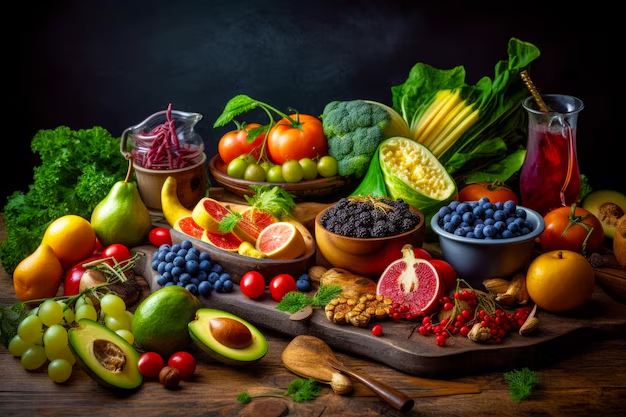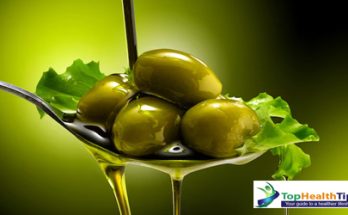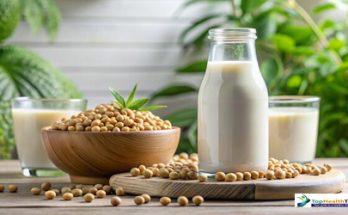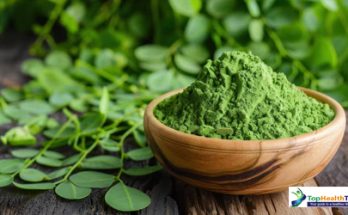Aging is a natural process, but did you know that your diet can play a significant role in slowing it down? Certain foods are packed with nutrients that support skin health, boost energy, and promote longevity. Let’s explore how incorporating these anti-aging foods into your daily routine can help you look and feel younger.
Why Diet Matters for Aging
Your skin reflects your overall health. Poor dietary choices can accelerate aging, leading to wrinkles, sagging skin, and low energy levels. On the other hand, consuming nutrient-dense foods can provide your body with the vitamins, minerals, and antioxidants it needs to repair cells, maintain elasticity, and reduce inflammation.

Top 20 Anti-Aging Foods for Healthier Skin and Longevity
1. Berries: The Antioxidant Powerhouses
Berries like blueberries, strawberries, and raspberries are rich in antioxidants, which protect skin cells from free radical damage. Free radicals are unstable molecules that contribute to skin aging and inflammation.
- Benefits: Reduce wrinkles, improve skin texture, and promote collagen production.
- Nutrients: Vitamin C, anthocyanins, and fiber.
Pro Tip: Add a handful of berries to your morning smoothie or yogurt for a delicious anti-aging boost.
2. Avocado: The Healthy Fat for Glowing Skin
Avocados are loaded with healthy fats, particularly monounsaturated fats, which help keep skin hydrated and smooth. They also contain vitamins E and C, which are essential for skin repair and regeneration.
- Benefits: Enhances skin elasticity, reduces dryness, and minimizes the appearance of wrinkles.
- Nutrients: Vitamin E, vitamin C, and folate.
Quick Snack Idea: Spread avocado on whole-grain toast and sprinkle with seeds for an easy, nutrient-rich snack.
3. Nuts and Seeds: Omega-3 Rich Foods
Nuts like almonds and seeds such as chia and flaxseeds are packed with omega-3 fatty acids. These essential fats help reduce inflammation, protect skin cells, and maintain a healthy moisture barrier.
- Benefits: Protects skin from UV damage, promotes cell regeneration, and reduces the appearance of fine lines.
- Nutrients: Omega-3 fatty acids, vitamin E, zinc, and selenium.
Diet Tip: Sprinkle seeds on salads, cereals, or blend them into smoothies to easily boost your intake.
4. Dark Leafy Greens: Nutrient-Dense Skin Saviors
Leafy greens like spinach, kale, and Swiss chard are high in vitamins, minerals, and antioxidants that combat aging. They provide a good source of vitamin K, which helps with blood circulation, reducing puffiness and dark circles around the eyes.
- Benefits: Detoxifies skin, enhances hydration, and improves skin tone.
- Nutrients: Vitamin A, vitamin C, vitamin K, iron, and folate.
Meal Idea: Add a generous portion of leafy greens to your salads, stir-fries, or soups for a nutrient boost.
5. Tomatoes: Natural Skin Protectors
Tomatoes are rich in lycopene, a powerful antioxidant that helps protect the skin from sun damage. Lycopene also improves skin texture by promoting collagen production.
- Benefits: Shields skin from UV rays, enhances complexion, and supports cell regeneration.
- Nutrients: Lycopene, vitamin C, and potassium.
Pro Tip: Cooking tomatoes increases the bioavailability of lycopene, so enjoy them in soups, sauces, or roasted for maximum benefits.
6. Green Tea: The Age-Defying Beverage
Green tea is packed with polyphenols, particularly catechins, which have anti-inflammatory and antioxidant properties. Drinking green tea regularly can improve skin elasticity and protect against sun damage.
- Benefits: Reduces inflammation, protects against UV radiation, and improves skin texture.
- Nutrients: Catechins, polyphenols, and caffeine.
How to Enjoy: Swap your morning coffee for a cup of green tea, or try matcha for a more concentrated dose of antioxidants.
7. Fatty Fish: Omega-3s for Youthful Skin
Fatty fish like salmon, mackerel, and sardines are rich in omega-3 fatty acids that support skin health by reducing inflammation and keeping skin moisturized. They also contain vitamin D, which is essential for skin cell growth and repair.
- Benefits: Promotes skin hydration, reduces acne, and protects against sun damage.
- Nutrients: Omega-3 fatty acids, vitamin D, and protein.
Diet Tip: Include fatty fish in your meals at least twice a week to reap its anti-aging benefits.
8. Olive Oil: The Mediterranean Elixir
Olive oil, especially extra virgin olive oil, is high in monounsaturated fats and antioxidants, including vitamin E and polyphenols. It helps maintain skin elasticity and protects against free radical damage.
- Benefits: Enhances skin hydration, reduces oxidative stress, and promotes a youthful glow.
- Nutrients: Monounsaturated fats, vitamin E, and polyphenols.
Usage Idea: Use olive oil as a salad dressing or drizzle it over cooked vegetables for a flavorful and healthy addition to your diet.
9. Sweet Potatoes: Beta-Carotene Rich
Sweet potatoes are an excellent source of beta-carotene, which the body converts into vitamin A. Vitamin A is crucial for maintaining healthy skin and promoting cell regeneration.
- Benefits: Supports skin repair, enhances skin tone, and reduces signs of aging.
- Nutrients: Beta-carotene, vitamin A, and fiber.
Meal Idea: Roast sweet potatoes or add them to soups and stews for a nutritious boost.
10. Red Bell Peppers: Vitamin C Powerhouses
Red bell peppers are packed with vitamin C, which is essential for collagen production and skin repair. They also contain antioxidants that help fight free radicals.
- Benefits: Promotes collagen synthesis, improves skin texture, and reduces wrinkles.
- Nutrients: Vitamin C, vitamin A, and antioxidants.
Snack Idea: Enjoy red bell peppers sliced with hummus or added to salads.
11. Pomegranate: Antioxidant-Rich Fruit
Pomegranates are rich in antioxidants and vitamins that help protect the skin from damage and reduce inflammation.
- Benefits: Improves skin texture, reduces inflammation, and promotes a youthful appearance.
- Nutrients: Antioxidants, vitamin C, and polyphenols.
How to Enjoy: Drink pomegranate juice or add seeds to salads and yogurt.
12. Garlic: Immune-Boosting Herb
Garlic contains allicin, a compound with antioxidant and anti-inflammatory properties that can support skin health.
- Benefits: Reduces inflammation, boosts immune function, and protects against free radical damage.
- Nutrients: Allicin, vitamin C, and manganese.
Usage Idea: Add garlic to your cooking for both flavor and health benefits.
13. Beets: Nutrient-Rich Roots
Beets are high in antioxidants and nutrients like betaine, which support liver function and help detoxify the skin.
- Benefits: Improves skin health, promotes detoxification, and reduces inflammation.
- Nutrients: Betaine, folate, and vitamin C.
Meal Idea: Roast beets or add them to salads and smoothies.
14. Kiwifruit: Vitamin C and E Boost
Kiwifruit is an excellent source of vitamins C and E, which are vital for skin health and collagen production.
- Benefits: Enhances skin hydration, reduces signs of aging, and supports collagen synthesis.
- Nutrients: Vitamin C, vitamin E, and antioxidants.
Snack Idea: Eat fresh kiwifruit or add it to fruit salads.
15. Mango: Vitamin A Rich
Mangoes are packed with vitamins A and C, both of which are essential for maintaining healthy skin and promoting cell regeneration.
- Benefits: Supports skin repair, improves elasticity, and provides a youthful glow.
- Nutrients: Vitamin A, vitamin C, and antioxidants.
How to Enjoy: Eat mangoes fresh or add them to smoothies and salads.
16. Walnuts: Omega-3 and Antioxidants
Walnuts are rich in omega-3 fatty acids and antioxidants, which help reduce inflammation and protect the skin from oxidative stress.
- Benefits: Supports skin hydration, reduces inflammation, and promotes a youthful appearance.
- Nutrients: Omega-3 fatty acids, antioxidants, and vitamin E.
Snack Idea: Enjoy a handful of walnuts as a nutritious snack or add them to salads and baked goods.
17. Chia Seeds: Tiny Powerhouses
Chia seeds are packed with omega-3 fatty acids, fiber, and antioxidants that support skin health and hydration.
- Benefits: Improves skin moisture, reduces inflammation, and supports overall skin health.
- Nutrients: Omega-3 fatty acids, fiber, and antioxidants.
How to Use: Add chia seeds to smoothies, yogurt, or oatmeal for a nutrient boost.
18. Edamame: Protein and Antioxidants
Edamame, or young soybeans, are rich in protein and antioxidants, which support skin health and reduce signs of aging.
- Benefits: Supports skin repair, boosts collagen production, and provides essential nutrients.
- Nutrients: Protein, antioxidants, and vitamins.
Meal Idea: Snack on steamed edamame or add them to salads and stir-fries.
19. Cucumber: Hydration and Skin Health
Cucumbers are high in water and contain antioxidants that help keep skin hydrated and reduce puffiness.
- Benefits: Hydrates the skin, reduces swelling, and provides a soothing effect.
- Nutrients: Water, antioxidants, and vitamins.
How to Use: Add cucumber slices to salads, or use them in refreshing beverages and facial masks.
20. Oysters: Zinc-Rich Delicacies
Oysters are a great source of zinc, which is crucial for skin repair, collagen production, and reducing inflammation.
- Benefits: Promotes skin healing, improves texture, and supports a healthy complexion.
- Nutrients: Zinc, protein, and omega-3 fatty acids.
Meal Idea: Enjoy oysters fresh or cooked in various dishes for a nutrient boost.
Quick Checklist: Incorporating Anti-Aging Foods
- Include a variety of colorful fruits and vegetables in every meal.
- Opt for healthy fats like avocados, nuts, seeds, and olive oil.
- Drink green tea daily for its skin-protecting benefits.
- Consume fatty fish weekly to boost omega-3 intake.
- Avoid processed foods, refined sugars, and excessive alcohol consumption.
How These Foods Combat Aging
These anti-aging foods work by providing essential nutrients that support collagen production, skin hydration, and cell regeneration. For example, omega-3 fatty acids reduce inflammation, antioxidants combat free radical damage, and vitamins C and E promote skin repair. By incorporating these foods into your daily diet, you can help slow down the signs of aging and improve overall health.

Top 20 Q&A for Anti-Aging Foods:
Q: What are the best anti-aging foods for healthier skin?
- A: Some of the best anti-aging foods include berries, avocados, nuts, seeds, dark leafy greens, tomatoes, green tea, fatty fish, and olive oil.
Q: How do antioxidants in food help with anti-aging?
- A: Antioxidants protect skin cells from free radical damage, reduce inflammation, and promote collagen production, helping to slow down the aging process.
Q: Can eating certain foods really reduce wrinkles?
- A: Yes, foods rich in antioxidants, omega-3 fatty acids, and vitamins like C and E can improve skin texture, reduce wrinkles, and boost elasticity.
Q: How do omega-3 fatty acids in fatty fish benefit the skin?
- A: Omega-3s reduce inflammation, keep skin hydrated, and support a healthy skin barrier, promoting a more youthful appearance.
Q: Is green tea effective for anti-aging?
- A: Yes, green tea contains catechins and polyphenols, which have anti-inflammatory and antioxidant properties that protect against skin aging and sun damage.
Q: What role do healthy fats play in anti-aging?
- A: Healthy fats, like those in avocados and olive oil, help maintain skin hydration, reduce dryness, and support skin cell regeneration.
Q: Are there specific fruits that are more beneficial for anti-aging?
- A: Yes, berries (blueberries, strawberries, raspberries) are particularly beneficial due to their high antioxidant and vitamin C content, which promotes collagen production.
Q: How often should I eat anti-aging foods for noticeable effects?
- A: Incorporating these foods into your daily diet can provide long-term benefits. Aim for a balanced diet with a variety of anti-aging foods each week.
Q: Can drinking water help with anti-aging?
- A: Yes, staying hydrated is crucial for skin health as it helps maintain skin elasticity, reduces dryness, and flushes out toxins that contribute to aging.
Q: Are there any foods that can accelerate aging?
- A: Processed foods, refined sugars, excessive alcohol, and trans fats can accelerate aging by increasing inflammation, reducing skin elasticity, and causing cellular damage.
Q: Is dark chocolate good for anti-aging?
- A: Yes, dark chocolate (with at least 70% cocoa) contains flavonoids that help protect the skin from sun damage, improve circulation, and boost skin hydration.
Q: Can I use anti-aging foods in homemade skincare?
- A: Yes, many foods like avocados, honey, and yogurt can be used in DIY skincare masks to provide hydration and nutrients directly to the skin.
Q: Do dairy products affect aging and skin health?
- A: For some people, dairy can trigger inflammation and skin issues like acne, which may impact the skin’s appearance. Opting for low-fat or plant-based dairy alternatives can be beneficial.
Q: What vitamins are essential for anti-aging?
- A: Vitamins A, C, E, and K are essential for skin health. They support collagen production, repair skin cells, and protect against free radical damage.
Q: Can adding spices to my diet help with anti-aging?
- A: Yes, spices like turmeric and cinnamon have anti-inflammatory and antioxidant properties that can benefit skin health and slow down the aging process.
Q: How does vitamin C in foods help with skin aging?
- A: Vitamin C promotes collagen production, repairs skin cells, reduces dark spots, and protects the skin from environmental damage, contributing to a youthful appearance.
Q: Is it possible to reverse aging signs with food alone?
- A: While food can greatly improve skin health and slow down aging, a holistic approach, including skincare, hydration, and lifestyle choices, is essential for optimal results.
Q: Do probiotics play a role in anti-aging?
- A: Yes, probiotics found in foods like yogurt and fermented vegetables help maintain gut health, which in turn can reduce inflammation and improve skin health.
Q: Can fasting or specific diets impact aging?
- A: Intermittent fasting and diets high in plant-based foods and low in processed sugars may promote cellular repair, reduce inflammation, and support overall skin health.
Q: How does olive oil benefit the skin when included in an anti-aging diet?
- A: Olive oil contains monounsaturated fats and antioxidants, which help maintain skin hydration, reduce oxidative stress, and promote a youthful glow.
Conclusion:
A balanced diet rich in anti-aging foods can significantly impact your skin’s health and overall longevity. By focusing on nutrient-dense options like berries, nuts, green tea, and fatty fish, you can help slow down the aging process and maintain a youthful glow. Remember, it’s not just about looking younger; it’s about feeling healthier and more vibrant at every age.
Related post for Nutrition & Food >>>
References
- Watson, R.R., & Preedy, V.R. (Eds.). (2014). Bioactive Food as Dietary Interventions for the Aging Population. Academic Press.
- Zasada, M., et al. (2020). “Dietary Impact on Skin Health and Aging.” Journal of Dermatological Science, 98(2), 75-84.
- Willett, W.C., et al. (2017). “Healthy Dietary Patterns and the Prevention of Chronic Diseases.” Nutrition Reviews, 75(suppl 1), 45-50.




